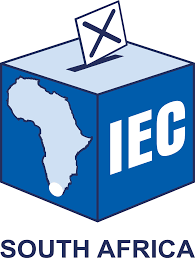Introduction:
Ready to participate in shaping the future of South Africa? The Electoral Commission of South Africa IEC invites you to register to vote and make your voice heard! Registering is a crucial step in our democratic process, and the IEC is here to guide you every step of the way. This process is simple, straightforward, and ensures that you can exercise your right to vote in upcoming elections. Here’s a step-by-step guide on how to register, ensuring you are ready to cast your ballot and contribute to the democratic fabric of our nation. Don’t miss this opportunity to empower yourself and influence the direction of our country!
Why Choose IEC:
Choosing the Electoral Commission of South Africa (IEC) as the body responsible for overseeing elections is a crucial decision rooted in the need for a fair, transparent, and credible democratic process. The is an independent and impartial institution established by the Constitution of South Africa, specifically designed to manage and safeguard the integrity of elections at all levels of government – national, provincial, and municipal. Selecting the IEC over other potential alternatives ensures that the electoral process is conducted according to well-defined legal frameworks and international best practices. This independence is vital; it insulates the election process from undue political influence and ensures that all parties have an equal opportunity to participate and compete fairly.
Beyond its constitutional mandate, has built a reputation for professionalism and expertise in election administration. Its staff are highly trained and dedicated to upholding the principles of electoral integrity. They are responsible for a wide range of essential tasks, including voter registration, managing polling stations, counting ballots, and announcing the official results. This comprehensive oversight minimizes the risk of fraud or manipulation, building public confidence in the outcome of elections. The IEC also invests significantly in technology and infrastructure to streamline the election process, making it more efficient and accessible to all eligible voters.
ADVANTAGES OF THE ELECTORAL COMMISSION OF SOUTH AFRICA (IEC)
The Electoral Commission of South Africa (IEC) plays a crucial role in upholding the democratic principles of the nation by ensuring free, fair, and credible elections. Its structure, powers, and mandate contribute significantly to the stability and legitimacy of the South African government. The IEC possesses several key advantages that enable it to effectively perform its duties:
1. Independence and Impartiality:
One of the most significant advantages of the IEC is its constitutionally guaranteed independence. This independence ensures that the commission operates free from political interference from the government, political parties, or other vested interests. This impartiality is critical for building public trust in the electoral process. The IEC’s decisions regarding voter registration, candidate eligibility, and election procedures are made without bias, fostering confidence among all stakeholders. For example, the IEC’s ability to adjudicate disputes between political parties impartially, such as disagreements over voter registration lists or campaign advertising, reinforces its reputation for fairness. This independence is further solidified by the appointment process of commissioners, which typically involves a multi-party consensus and parliamentary oversight.
2. Transparent and Accountable Processes:
The IEC strives to maintain transparency in all its operations. This includes making information about voter registration, election procedures, and results publicly available. The commission regularly publishes reports, holds press conferences, and utilizes its website and social media platforms to disseminate information to the public and the media. Observers, both domestic and international, are often invited to monitor elections, further enhancing transparency and accountability. The detailed reporting of election results, down to the voting district level, allows for independent verification and reduces the potential for accusations of manipulation. Furthermore, the IEC is accountable to Parliament and subject to audits, ensuring financial probity and responsible use of public funds.
3. Expertise and Professionalism:
The IEC boasts a dedicated team of professionals with expertise in various aspects of electoral administration, including voter registration, logistics, technology, and legal compliance. Continuous training programs are implemented to ensure that IEC staff remain up-to-date with best practices and technological advancements in electoral management. This expertise is crucial for managing the complex logistical challenges of organizing national and local elections, particularly in a country with diverse geographic and demographic characteristics. For instance, the IEC’s expertise in using technology to manage voter registration and election results has been instrumental in reducing errors and improving efficiency.
4. Continuous Improvement and Innovation:
The IEC is committed to continuous improvement and innovation in its electoral processes. It regularly reviews its performance, identifies areas for improvement, and implements new technologies and procedures to enhance efficiency and accuracy. The adoption of electronic voter registration systems, the use of biometric identification, and the development of online platforms for voter education are examples of the IEC’s commitment to innovation. By embracing technology and actively seeking ways to improve its processes, the IEC strengthens its ability to deliver credible and efficient elections.





M looking for a job
thank you for reaching out
I need a job …I’m willing to work hard.
THANK YOU
I’m desperately looking for employment it’s been more than 2 years not working please help
Thank You For Reaching Out
Looking for a job
Thank you for reaching out